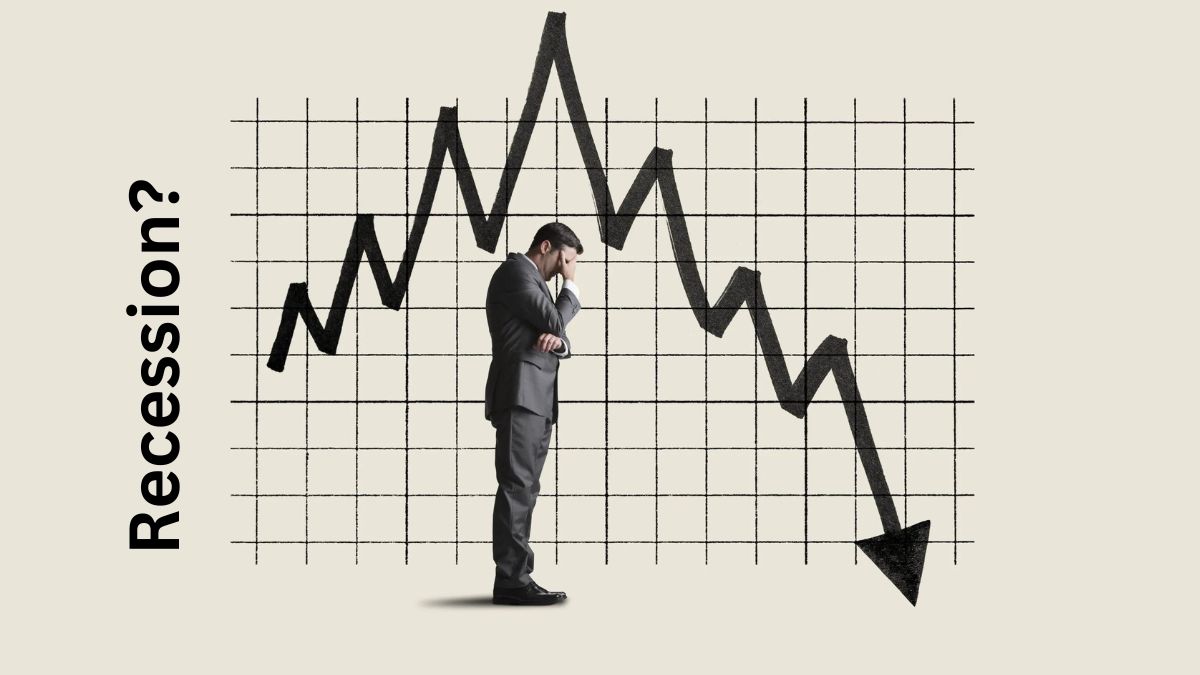It might be difficult to stay abreast of the latest economic trends and statistics due to the rapid pace at which the economy evolves. The subject of whether or not we are currently experiencing a recession is currently on the minds of many. To answer this question, we will look at the current economic condition and the information presented in this essay.
What is a recession?
Let’s start with the basics before we go into the present economic climate and that means defining what a recession is. When GDP (Gross Domestic Product) falls for two or more consecutive quarters, the economy is said to be in a recession. Consumers and workers alike tend to tighten their belts and save money during economic downturns.
Understanding the Current Economic Climate
- Many countries throughout the world have experienced recession as a direct effect of the COVID-19 outbreak. The National Bureau of Economic Research announced a recession in the United States in February of 2020, with the onset of the COVID-19 epidemic being cited as the cause.
- The U.S. economy took a hit from the pandemic, but it appears to be stabilizing now. Unemployment rates had been falling and GDP increased at an annual rate of 33.4% in the third quarter of 2020. The government has also taken a number of initiatives to help individuals and businesses.
- GDP growth of 6.4% in the first quarter of 2021 is indicative of a sustained economic recovery. Concerns remain, though, regarding the pandemic’s potential long-term effects on the economy, especially if other outbreaks or lockdowns occur in the future.
Indicators of a Recession
Economists examine a number of different metrics to assess if a recession is occurring. For example:
- GDP growth – As was previously indicated, one of the most telling indicators of a recession is a quarterly fall in GDP.
- Unemployment rates – Many people lose their jobs during a recession, which raises the unemployment rate.
- Consumer spending – Businesses may feel the effects of consumers’ reduced purchasing during economic downturns.
- Stock market performance – Investors use the stock market as a barometer for the economy. The stock market typically suffers during economic downturns.
Based on these measures, it would appear that a recession is not currently affecting the U.S. economy. The unemployment rate has been falling, and both business investment and consumer expenditure have been on the rise. The stock market has shown hints of revival amidst recent turmoil.
Factors Impacting the Economic Climate
There are a number of variables that can affect the economy and cause shifts in GDP, unemployment, and consumer spending. Among these are some of the following:
- Government policies – Stimulus packages and tax cuts are only two examples of government measures that can have far-reaching effects on the economy. The recent COVID-19 pandemic stimulus measures, for instance, have aided individuals and businesses and increased consumer expenditure.
- International trade – When there are shifts in international trade agreements or tariffs, this might have repercussions for the economy. The epidemic has impacted the economy through supply chain disruptions.
- Consumer confidence – When people are optimistic about their personal financial situations and the status of the economy as a whole, they are more likely to spend money. Consumer confidence has taken a hit as a result of the epidemic, which has resulted in many people losing their employment or facing other financial difficulties.
- Industry-specific factors – The economy may also be affected by shifts in particular areas like technology or healthcare. The expansion of the tech sector, for instance, has had far-reaching consequences for the economy in recent years.
As we keep an eye on the economy, it’s crucial to remember these aspects and think about how they could affect the big picture.
The Importance of Monitoring the Economic Climate
- There may be no signs of a recession at the moment, but it is still wise to keep tabs on the economy and learn about any shifts in GDP, unemployment, or consumer spending. This can aid people and organizations in making wise financial and investment choices.
- In order to make informed choices regarding saving, investing, and spending, individuals might benefit from keeping tabs on the economy. For instance, if the unemployment rate is high, cutting costs and economizing might be the best course of action.
- In order to make educated choices about hiring, investing, and expanding, businesses should keep an eye on the economy. Investment in new goods and services might be unwise if, say, consumer spending is down.
Conclusion
Despite the widespread damage to economies around the world caused by the COVID-19 epidemic, it seems that the United States is not now experiencing a recession. Despite ongoing worries about the pandemic’s long-term effects, recent economic data suggests the economy has been rebounding. We can keep an eye on the state of the economy and make sound financial decisions by tracking crucial metrics like GDP expansion, unemployment rates, and consumer spending.
While the U.S. economy is not in a recession at present, it is still vital to monitor developments and take into account the potential effects of policy changes, changes in foreign trade, consumer confidence, and industry-specific issues. Individuals and organizations can succeed in today’s dynamic economic environment by keeping abreast of developments and using that knowledge to guide their actions.











